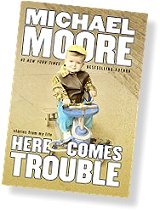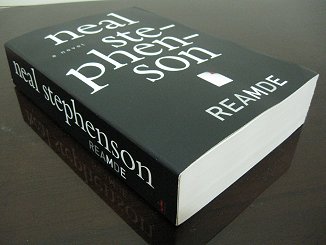Many years back, I'd been eating something when two Malay boys walked past. It was the fasting month, so one of them went, "Oh dear, he's eating in front of me!"
Of course I was traumatised by that. I still remember it, even though it happened in the 80s. If you're reading this, Mohd Ishak, from Francis Light Primary School (1), Penang,
mohon maaf.
To this day I feel a bit self-conscious when eating in public during that time of the year. I sometimes wonder what prompted that outburst. I don't think it was anger, though. I didn't get a dressing-down over it, nor was I beaten up.
But what would happen in school these days if someone made the same boo-boo I did?
Those days of Ramadhan past were dredged up by this
report yesterday morning:
The Home Ministry has called up the Group Chief Editor of The Star for running buka puasa articles together with stories on non-halal restaurants.
Its deputy secretary-general (Security) Datuk Abdul Rahim Mohamad Radzi said the pictures and also promotion of non-halal restaurants were carried in the paper's Dining Out supplement, with "Ramadan delights" as its cover headline.
I shook my head and then rummaged the paper pile in the office for the "offending" supplement.
There, in all its glory at the top left corner of page four, a picture of a Chinese restaurant's "must try" Mongolian pork rib. Ah yes, I missed the ad on
page two for Morganfield's "Sticky Bones", a sick, huge slab of what looks like barbecued pork ribs.
The next few pages were advertorials for a dim sum place, Morganfield's, the gastropub chain Library and a bistro-type place with a selection of "over 400 Old World and New World wines".
In an ideal world, a person would just shake one's head, chuckle and read the rest of the section, then move on to the funnies. One could, after that, calmly write a letter to the editor, because that would be the most rational thing to do. But this world is far from ideal, so things such as "tolerance", "understanding" and "rationality" don't always make an appearance.
Of late,
The Star has been slipping up on occasion. Reshuffling hiccups? Maybe. Was it 2.30am when they finally closed it, all bone-tired and bleary-eyed? Plausible.
The whole thing's quite unfortunate. From the mix of ads I saw it looked as if they were trying to be impartial, maybe make the fasting month a little more special for everyone. Just like what Whole Foods is doing in the US.
Days earlier, the American supermarket chain faced a similar
situation after they put up a Ramadhan
promotion. Yes.
Not everyone appreciated it, though. A conservative blogger
hurled bile over how "anti-Israel" Whole Foods was shilling "for jihadi interests".
(Some researchers
claim that poison arrow frogs source ingredients for their lethal neurotoxins from by eating certain insects. Not sure I want to know what that blogger's been into.)
No guesses as to why some Americans aren't taking a shine to the company's initiative. So, let's hear what a food blogger has to
say about Ramadhan:
"...it is an incredibly important holy month for Muslims. For us, it is a time of reflection — a time to develop compassion for those who live with hunger and thirst as a way of life, and to do something to help them. It’s a time to practice self-control and willpower in the face of numerous temptations; and to purify one’s self by taking time to focus on character and purpose.
Of course, some bad apples, like the obvious ones over in Syria, don't seem to be getting with that programme. Small wonder that Ramadhan, like so many other aspects of Islam, is tainted by the actions of an extremist few.
But wait, you say. Things roll differently in Malaysia. The majority of people here celebrate Ramadhan, and anything deemed offensive to them may have huge effects. So, someone might have complained about it for the sake of the public.
I will audaciously presume that "the public" here includes me.
Yes, I suppose that's how we've been taught. I for one, however, would be offended to have someone complain on my behalf about things that "offend" my sensibilities. Just as how some are offended by any suggestion that their spirituality during the holy month is fragile.
If I were, I'd rather do my own complaining because I'm so much better at it, and am capable of more measured responses.
Also, it's not as if all the establishments in that supplement were non-halal. One can still pick his or her way through the section to find more appropriate places to break fast. Recommendations not good enough?
Bambu the paper with that letter I suggested you write, and maybe suggest some places you know have good
buka puasa grub.
This isn't exactly new. I remember hearing (in 2007) about someone being offended by a food writer's
article on
roti babi in Penang a while back, simply because of the four-letter word. Incidentally, the article was published not long after the start of the fasting month then (13 September to 12 October).
So I guess it has been with us for a long while. This... anger, this hair-trigger tendency to get upset whenever our sensibilities are offended. Have we always been this way, or did things get even worse since my primary school days?
I believe that people take offence because they
choose to take offence. So much ill feeling can be avoided if we ignored, rather than took, offence at certain things. There's plenty going on lately that's more worthy of our outrage, but that's not the point of this rant.
And no, I don't think non-Muslims at home need to be educated about Islam or Ramadhan. If there's anyone out there who needs that education, it's the Yankees who, judging from the Whole Foods thingy, aren't exactly the most informed people on this planet.
As Mohammed al-Rehaief
learned, to his chagrin, when he visited Jessica Lynch's hometown of Palestine, West Virginia.
al-Rehaief was the Iraqi doctor who helped Lynch, a survivor of an ambush by insurgents. But when he called on her, she was, it seemed, too busy to see him. And it got better:
The failed visit ended on a somewhat farcical note when local townspeople offered the al-Rehaiefs a meal - of ham sandwiches and burgers - only to discover that they were fasting for Ramadhan and, in any case, being Muslim, did not eat ham.
How tragic-comic. Not even worth a cringe or facepalm.
In the spirit of the fasting month, why not a
lawatan sambil mengajar to the US heartland and educate these benighted heathens about religion and Ramadhan? And maybe undo some of the damage done by Fox News supremo Roger Ailes and his ilk? Some of the noise coming out of that so-called "news channel" is categorically carcinogenic.
A much better cause than banning beer, gatecrashing charity dinners, burning web sites and chastising newspapers for what looks like a genuine slip-up.
























